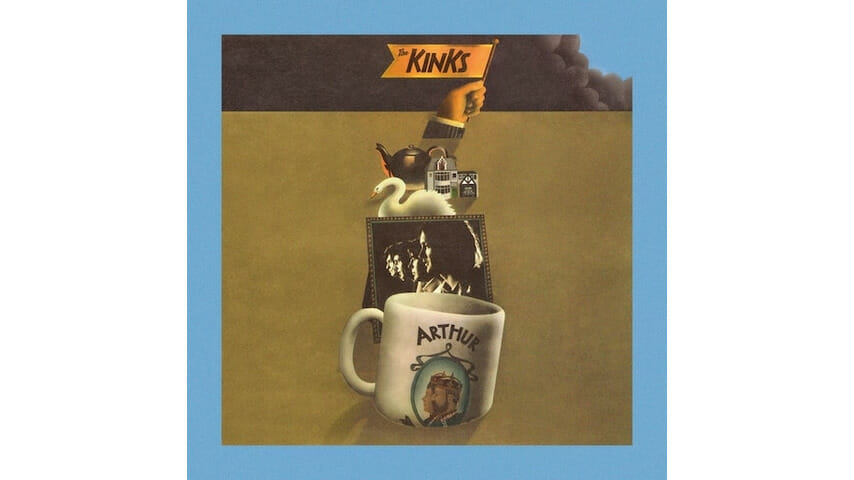Introducing Endless Mode: A New Games & Anime Site from Paste
In the late ’60s, the pop music landscape in the U.K. was dominated by major forces making major statements: Tommy, the White Album, Beggars Banquet. Meaty, mature albums that mirrored the tempestuous times with dark visions and big concepts. By contrast, an album like The Village Green Preservation Society (which was reissued last year with its own box set) and Arthur (or the Decline and Fall of the British Empire), the last two albums released by The Kinks at the end of that decade, seemed entirely out of step; Ray Davies’ critiques of British culture, steeped as they were in music hall traditions and the growing influence of American country music, felt downright quaint when placed up against the likes of “Gimme Shelter” or “Revolution.”
The Kinks’ cause wasn’t helped by their willingness to play the game. Davies wrote material for BBC programs like At The Eleventh Hour and Where Was Spring, and the songs that wound up on Arthur were intended for a television play to be produced by Granada TV. Those were the kind of institutions rock bands were supposed to thumb their collective nose at, not accept paychecks from.
The band celebrated Arthur’s 50th anniversary with a newly released deluxe box set, cementing its stature as one of The Kinks’ finest recorded works as well as one of the best concept albums of the era. This multi-disc release also stands as an argument against sets of this nature. Its four CDs, two 45s and assorted ephemera do tell the complete story of the band circa 1969 but is laden with a large amount of fluff and nonsense.
What isn’t in question is that the original album—presented in both stereo and mono versions—is without peer. Davies ably folded deeply personal sentiments into this ostensibly fictional tale of the titular Arthur, a British carpet layer, taking stock of his life. It bettered the gentle upbraiding of Village Green with pitch-black sentiments like “Some Mother’s Son” (“Some mother’s son lies in a field / Back home they put his picture in a frame / But all dead soldiers look the same”) and found the crinkled edges of Arthur’s life in the title track, looking at his striving and wheel spinning with a mixture of sympathy and pity. The album also presented the world with Davies’ finest moment as a songwriter: “Shangri-La,” a blooming musical flower that quickly withers as the visions of suburban bonhomie become stifling and soul-deadening. It’s all wrapped up in almost ironically lush, infectious pop.
The rest of this set muddies the messages considerably as it tries to offer up more clarity. The third disc collects the majority of the solo singles that guitarist and Kinks co-founder Dave Davies released around this period, many of which featured the backing of his bandmates. As fine as some of the tracks were (“This Man He Weeps Tonight” is a fantastic heartbroken rocker while “Lincoln Country” showcases charming psychedelicized country pop), the younger Davies is no match for his brother’s songwriting acumen. The last CD tosses some nice BBC mixes of tracks into the proceedings, but most of it is the product of head-scratching decisions. A collection of home demos of the Arthur material is presented in a long medley rather than as individual songs. And, as he did with the Village Green reissue from last year, Ray Davies re-recorded some of the material as doo-wop tunes or with symphonic grandiosity—entirely unnecessary and flat-out bad.
But the original Arthur is strong enough to survive such an odd treatment, especially with the inclusion of a well-designed book that tells the story of the album’s creation, featuring a nice essay from designer Bob Lawrie about the album’s iconic artwork and another discussing how the Kinks were able to tour America again after having been essentially banned for four years. They were able to finally match their creative peak with some much-needed financial uplift, fueling them to further heights through the ’70s. Is that, plus the other little goodies packed into each box, enough to warrant the inflated price tag of this set? Not when there’s truncated, and much cheaper double-LP and two-CD versions available at the same time, no.
